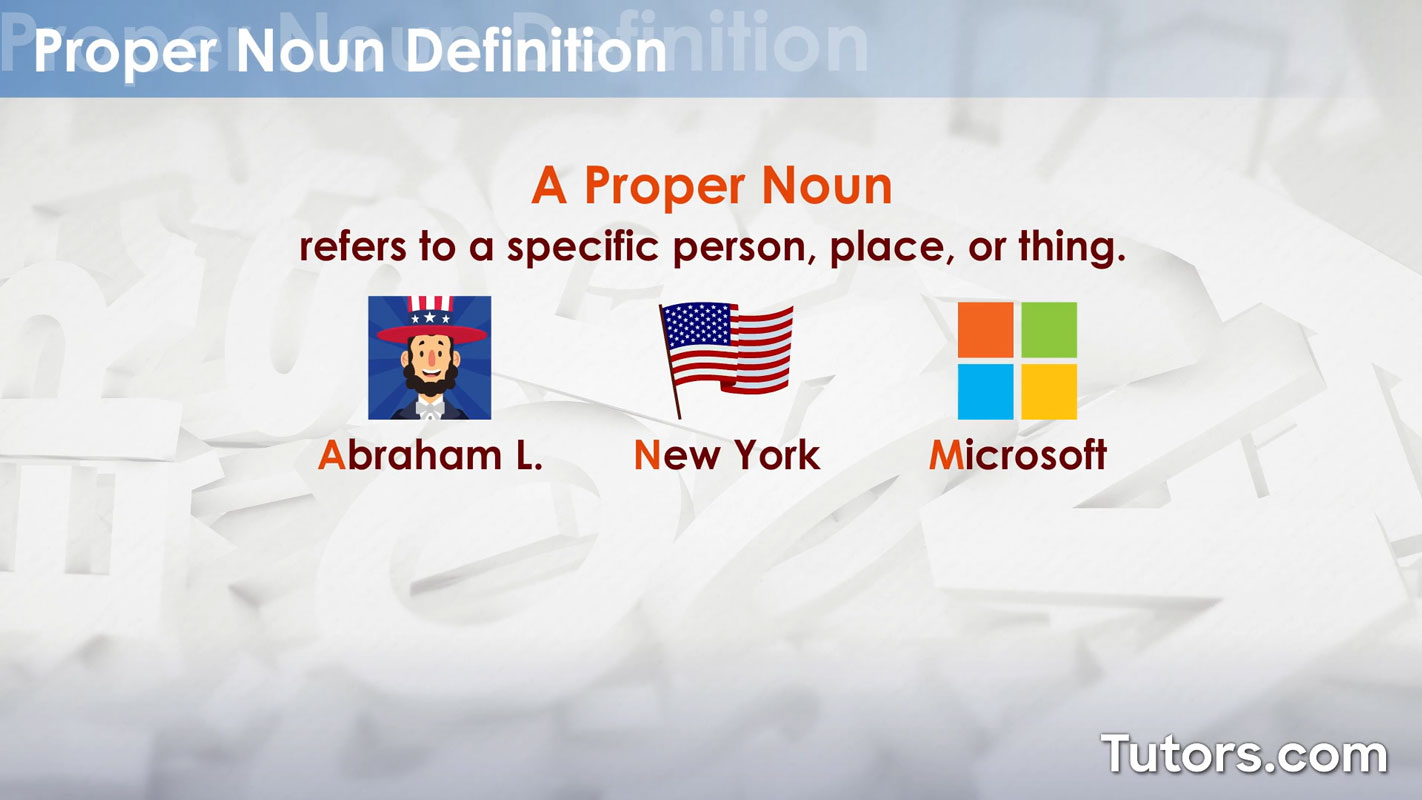Proper Nouns — Definition, Rules, and Examples
What is a proper noun?
A proper noun refers to a specific person, place, or thing. Because they denote the exact name of a particular noun, they are always capitalized no matter where they fall within a sentence.
Grammar rules for proper nouns
There are several specific grammar rules for proper nouns that relate to capitalization, use of articles, directions, relationships, dates, and job titles.
Capitalization
People – A person's first, middle, and last name are considered proper nouns (or proper names) and should be capitalized. Nicknames and pet names are also proper nouns and should be capitalized.
Places – Specific names of locations (township, city, state, country, continent, etc.) and bodies of water (Lake Erie, Nile River, Pacific Ocean) are proper nouns. In some cases, a specific residence can function as a proper noun, such as the White House and Buckingham Palace.
Things – Common things that are proper nouns include company names, historical monuments, and brand names.
Only the important words are capitalized when a proper noun includes a preposition or conjunction. For example:
Fatima moved to the United States of America from Trinidad and Tobago.
Articles
The articles "a," "an," and "the" do not typically precede proper nouns.
"The" is the exception to this rule because it can precede the name of a country if that name includes "States," "Kingdom," "Republic," etc., and rivers, seas, and oceans.

Directions
Directions such as north, south, east, and west are only written as proper nouns if used within the name of a place.
Proper noun: We have family living in South America.
Common noun: We have family members who live in the south.

Relationships
Words indicating a family member (mom, dad, grandma, etc.) should have an initial capital letter only if the word is used the same way as an actual name. Otherwise, it should have lowercase letters.
Proper noun: Can you please ask Dad what time we are leaving today?
Common noun: His dad decided to leave early today.
If a family title precedes a name, it is a proper noun. Examples are Aunt Vicky and Uncle Ron.

Dates
Days of the week and months of the year are proper nouns; however, seasons are not. For example:
Seasons should only be capitalized if used as part of a specific name:
Matt and Penelope organized the Spring Fling.

Job titles
Job titles are not considered proper nouns. However, they should be capitalized if they precede a person's name.
President George Washington.
George Washington was the president.

Proper noun vs. common noun
Common nouns reference general people, places, and things, whereas proper nouns are specific and exact. Due to their generic nature, common nouns are not capitalized in English.
| Proper noun | Common noun | |
|---|---|---|
| Person | Abraham Lincoln | president |
| Place | New York City | city |
| Thing | Kleenex | tissues |

Proper noun examples
The following sentences incorporate examples of proper nouns:
People
Leonardo da Vinci created some of the art world's most famous paintings.
Steve couldn’t believe Ronald Reagan was an actor before becoming president.
Michael J. Fox is well known for his role in Back to the Future.
Places
Nick has always wanted to visit the museums in Rome.
Lydia took a tour of the White House last summer.
Which river is longer, the Nile or the Amazon?
Things
The Declaration of Independence is one of America's most important documents.
Mike prefers the original Star Wars movies over the prequels.
Tina enjoys Snickers more than any other type of candy.
